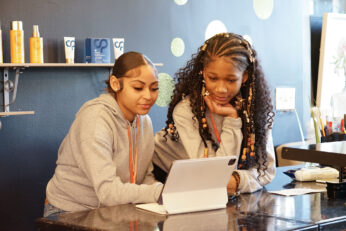“…..we must create a virtual pathway to obtaining what our kids deserve. It is our obligation to pivot: to learn and teach new steps. We know that many worksites across the city are ready and willing to partner with us in this dance. “
Post by Letta Neely, Apprentice Learning Program Director
COVID-19. We could stop there, except, we can’t. We have too much at stake. The world as we know it has lost its clothing and all is laid bare. Schools, businesses, parks, and malls are closed. With all this, one could presume that the work of Apprentice Learning has no place in this “new world”; that everything is on pause because our Apprentices have no worksites to visit each week; because summer programs may cease to exist during a global pandemic. There are a lot of ways we could hear, “NO!” in the stillness.
However, at Apprentice Learning, we hear obligation and opportunity. Our mission: “Leveraging career explorations to teach skills and nurture dreams” still applies. Our clarion call “to spark passions and interests; to give a sense of purpose to a young person’s present and future” hasn’t changed.
So when the Universe says, “Pivot”, we pivot.
In this new world, we still must provide a patina of normalcy for middle school students. We must continue to believe in and to provide a foundation for the future. In the world of remote work, a number of essential skills remain the same: eye contact, proper greeting, knowing one’s signature strength and primary learning styles. And…there is more to do now, more to do differently.
There is opportunity in this new time to teach and model a newly emerging set of essential skills: remote work habits, oral and written communication skills, presentation efficacy, time management and organization, personal drive, team work, and independence; and lastly, problem-solving mindset and trouble-shooting capacity.
These are skills that our middle school students need in this new world (whether it remains virtual in the long-term or not). Helping middle schoolers develop, maintain and augment these capacities widens their horizon. Becoming fluent with these “emerging essentials” will broaden our Apprentices’ access to their future careers and other dreams. These are skills we can teach. So, we must create a virtual pathway to obtaining what our kids deserve. It is our obligation to pivot; to learn and teach new steps. We know that many Worksites across the city are ready and willing to partner with us in this dance.


